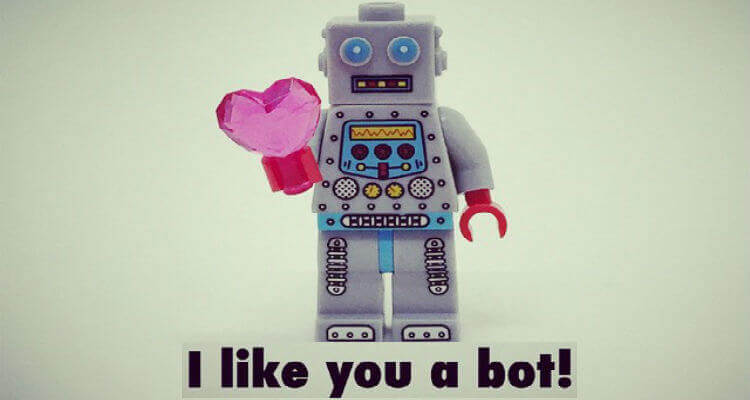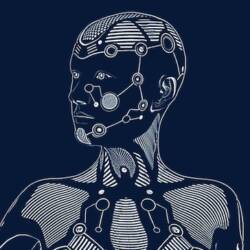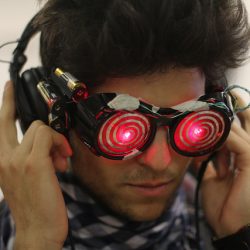No Reason to Fear Sex Robots Replacing Humans, Researchers Say
Yet, it could be argued, this has already happened.

Bring up the subject of sex robots—lifelike, artificial reproductions designed for sexual pleasure—and, more than likely, someone somewhere will be alarmed that they will eventually be so good at copying human behavior that they will supplant the desire for the flesh-and-blood variety.
However, according to a study published in the International Journal of Social Robotics, these fears are pretty much groundless: machines are machines and humans and humans—and one won’t ever really replace the other.
And while this might at first sound like a cause for celebration, with no one really wanting to hear they’re on the road to obsolescence, there may actually be signs that this will actually happen someday—if it hasn’t, to some degree, happened already.
The meaning of humanoid sex robots

The article, “Constructing the Meaning of Humanoid Sex Robots,” authored by Deborah G. Johnson at the University of Virginia, Charlottesville and Mario Verdicchio, from the University of Bergamo, Italy, aims to look at the development, proliferation, and eventual social impact of this new technology.
They look through a lens of critical analysis or as they said when speaking to Tech Xplore:
We started our joint research to debunk some myths and misunderstandings in the media regarding the future of artificial intelligence. We were struck by how fundamentally flawed some of the ideas were and especially the assumption that the computational version of some aspects of reality are the same as the real thing.
In short, they’ve come to the conclusion that there will always be inherent societal voids in sex robots—a personal gap between a machine and a human being—even when they have been designed to replicate human sexuality and even, to some degree, some form of emotional intimacy.
Furthermore, Johnson and Verdicchio—beyond trying to reframe the issue of sex robots and of them being a replacement for true human interaction—see their study as a jumping-off point to try and steer discussions about sex, robotics, and such toward what they see as a more positive outcome.
Or, as they also put it in the same conversation with Tech Xplore, “Humanoid sex robots are not coming to us out of the blue: social forces are shaping their design and their meaning.”
So, by changing how we think and talk about sex robots, there might be a way to dissuade fears of them superseding human-to-human sexual pleasure. This is based, at least partially, on their conclusion that most people, as well as the media in general, don’t quite understand what artificial intelligence is and can do.
“Our research is aimed at showing that humanoid sex robots could come to be understood in ways that keep their status as machines, albeit technologically very sophisticated machines,” said Johnson and Verdicchio.
Enjoying, and loving sex robots

Kudos to Johnson and Verdicchio are definitely due, if anything because their work might alleviate the anxiety some people have about a possible future where sex robots rule the human erotic world.
Fear, after all, never does anyone or any technological innovation any good. Concern, yes. Fear, no.
The thing is, while they do seem to bring some good news to the issue, there’s something they haven’t looked at—the aspect that sex-robot-to-human interactions aren’t a “someday this might happen” situation but rather one that’s already here.
For instance, we’ve already covered how the marketing of sex robots has begun to evolve away from being simply physical pleasure devices and more as intimate companions.
Similarly, we’ve heard from aficionados time and time again who, even though they aren’t equipped with cutting-edge artificial intelligence, happily consider their dolls to be lovers in every aspect of the word, emotionally as well as physically.
This may not be something people outside of doll culture understand or accept, but it inarguably exists.
Then there are those who don’t see sex robots as facilitating any kind of emotional relationship—equal to those had with human beings—but actually embrace the inherent differences between the artificial and the natural.
For example, just look at the growing proliferation of sex doll brothels where the appeal isn’t for sex with something “as good as a human”—but something uniquely different.
Do we need to understand it to enjoy it?
Admittedly, I’m oversimplifying Johnson and Verdicchio’s study but I still hope to respect their point of view. They appear to hinge a lot of their position on the fact that most don’t understand how different and incompatible artificial intelligence is compared to the biological variety, and that by leveraging this they can help assuage people’s fears about it someday taking over.
But looking at the state of sex robots and how they are now being marketed and sold—and most importantly how they are used, as more than just pleasure devices—we see that most people don’t need to understand their mechanisms to enjoy them.
Beyond this, it also shows that while public opinion and the media can play an important part in how any new technology is accepted, it doesn’t change individual needs or preferences: those who find pleasure in sex robots, physically or emotionally, simply just do so.
A new form of love

Yes, sex robots will do nothing but get more and more sophisticated as time goes on until, at some time or another, they actually might get so close to the real thing as to be indistinguishable.
But that time and that possibility is a long way off. Meanwhile, in the present day, there are those who find all kinds of pleasure and companionship in their sex robots.
And in this way, they could be a true sign of what’s to come: sex robots won’t replace biological sexual pleasure but will be there for those who need and desire them—not as a replacement—but an option.
Image sources: Damian Gadal, Betsy Weber, Crystal, Dave Koi
Leave a reply
You must be logged in to post a comment.
















